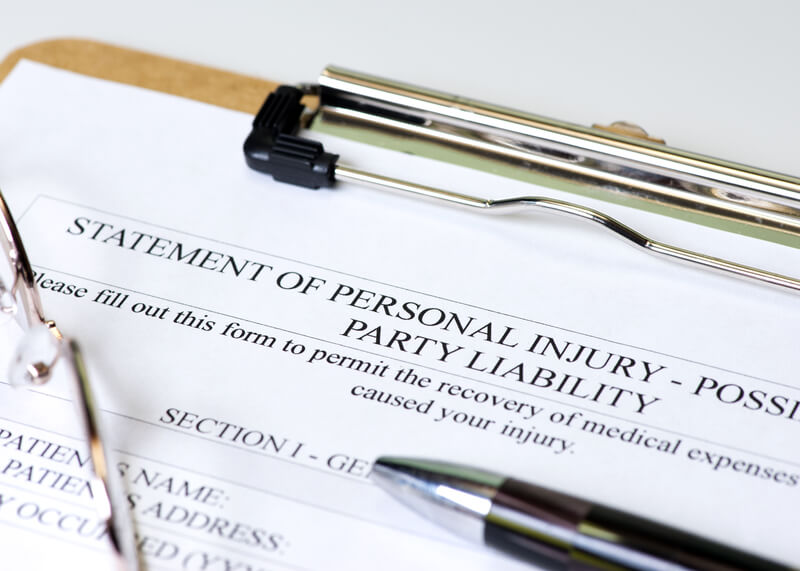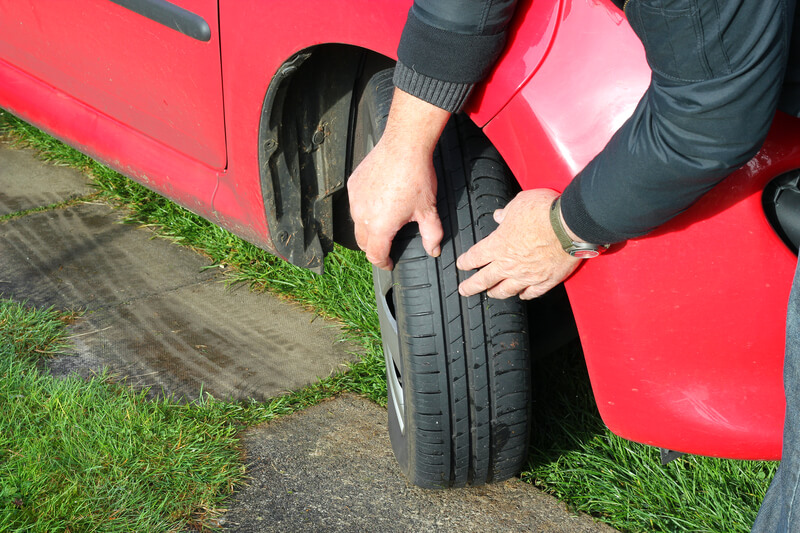With the holidays approaching, it’s easy to let the season’s to-do lists overwhelm your schedule. But, if you’re planning a road trip this Thanksgiving vacation, don’t forget to set aside a little time to map out your itinerary, prep your car and get the rest you need to drive safely. Even if you plan to stick close to home this holiday season, it’s smart to be aware of the increased risks on the road.
In 2021, crashes killed 20 people in Georgia during the Thanksgiving holiday, including drivers, motorcyclists and pedestrians, according to the Georgia Department of Public Safety and the AJC. Stretching from the night before Thanksgiving to Sunday evening, the Thanksgiving holiday period is one of the deadliest nationwide, due partly to increased volumes on the roads and alcohol use. So, how can you prepare for safer holiday travel, and, if you’re braving Atlanta traffic instead, what safety tips should you follow?
Preparing for a Thanksgiving road trip
Whether you’re heading home to see the folks, taking the kiddos on the road or meeting up for a Friendsgiving at a rental, it can be nice to skip the frenzy of holiday air travel and load up the car for a road trip.
Before you go, though, it’s smart to plan ahead and do some holiday travel preparation so you can enter holiday mode with confidence. Here’s what you’ll want to do:
- Get your car serviced, ideally a few weeks before you go. Now’s the time to check your tire pressure, change your oil and top off fluids.
- Stock your emergency kit (more on this later) and be sure it’s weather appropriate.
- Map out your ideal route. Sure, GPS is a help when you run into traffic on the highway, but have a basic understanding of where you should be going and what stops you’d like to hit. If you’re visiting remote areas, don’t rely on your GPS and never travel down roads unsuitable for your vehicle—especially in the winter.
- Share your itinerary with a loved one or family member. Someone should know when you plan to leave, any overnight stops you’re taking and when you’re supposed to arrive. Notify them of any last-minute changes.
- Pack the car properly. It’s easy to find your car filled with luggage, gifts, food and gear—especially if you’re traveling with kids. Just be sure that heavy objects are safely stowed in the trunk of your vehicle. Unsecured items can be dangerous in a crash.
- Get some sleep! While it’s tempting to leave late at night to beat some traffic, consider how alert you’ll be and what you’d do in an emergency in an unfamiliar area. That Thanksgiving dinner will taste better when you’re well-rested!
Once you’re ready to hit the road, be sure everyone is buckled up or is using a properly fitted child safety restraint system. If your pets are coming along for the trip, use travel crates, carriers or heavy-duty travel harnesses to keep them safe.
Heading north? Staying safe on winter roads
Here in Georgia, there’s not a lot that goes into annual car winterization. But if you’re heading even just a few hours north, you’ll want to take steps to make sure your car can handle snow and ice. The National Safety Council recommends:
- Testing your battery
- Measuring your tread depth, especially if you use all-season tires, and checking your tire pressure
- Checking your wiper blades for wear
- Keeping your gas tank at least half full
Once you’re driving on winter roads, turn off your cruise control and increase your following distance. To avoid carbon monoxide poisoning, the National Highway Traffic Safety Administration also recommends avoiding running your car for long periods of time if you’re stuck or stalled.
What should you pack in your car’s emergency kit?
Despite your best efforts to plan and make sure your car is in top shape before you leave home, things happen. Having a well-stocked emergency kit will help you get out of some situations or stay safe while you wait for help. Here’s what to pack:
- An inflated spare tire and a tire-changing kit
- Jumper cables and a jump starter
- A flashlight and batteries
- Flares or safety cones
- A first aid kit with basic bandages and medicines
- Water and nonperishable foods like nuts, dried fruit or protein bars
- Reflective safety vests if you have to walk to the nearest service station
- A cell phone charger and portable power bank
- Warm blankets and weather-appropriate clothes (including footwear)
If you’re traveling somewhere cold, you’ll also want to pack a snow shovel, broom, and ice scraper, as well as sand or cat litter to help provide traction if your car gets stuck.
Holiday flight: How to prepare for Thanksgiving air travel
If the preparations above make you concerned you’ll find yourself stalled in remote, snowy woods reaching for the cat litter or granola, air travel might be your better bet.
The Federal Aviation Administration, however, notes that more planes in the sky and the higher chances of bad weather in the winter months can lead to delays. To have a better sense of your plane’s status, the FAA recommends enrolling in TSA’s PreCheck, consulting your airport’s security wait time and checking the weather conditions at your departure point and destination. Doing so may give you a better sense of possible delays.
Keep in mind that the days leading up to Thanksgiving are often the busiest holiday travel days, so be sure to plan extra time for traveling to the airport, parking, security and traveling through the airport to your gate.
If you’re traveling with young kids, it’s safer for them to ride in child safety restraint systems rather than on your lap. According to the FAA, the most common pediatric injuries on planes are due to turbulence and a lack of safety restraint seats. If you’ll be driving at your destination, also be sure to check car seats or booster seats—even if you’re just taking a short drive in a taxi or rideshare.
If you’re going abroad for a holiday trip, consider travel insurance and share your itinerary with someone close to you, including your flight numbers and lodgings, as well as copies of your passport.
What to do if you’re in an accident away from home
A car crash in any location is frightening and disruptive, but it can be even harder when you’re far from home. The steps you’ll follow, however, aren’t too different from what you’d do here in town.
You’ll still want to call 911, check for injuries and wait for first responders to arrive. If you need medical attention, accept it. If you’re able to stay on the scene, exchange information with the other driver, gather witness contact information and take photos of the crash damage and site.
After your medical treatment, give your insurance company a quick call to share that you’ve been in a crash away from home. Next, if you were driving a rental, call the rental car agency. They should be able to provide a new vehicle. If you’re in your own car, you’ll need to get an estimate on how long repairs will take and decide whether your trip can continue.
No matter your situation, keep documentation of all the expenses related to your crash. This will include your medical expenses, towing costs and rental-related fees, but it could also include your lodging expenses as you await repairs.
They’ll each be important records for reimbursement in your eventual personal injury case. Whatever you do, don’t postpone medical care. It’s hard to argue you were injured in a crash unless you’re treated soon after the accident.
In-town driving: staying safe at home
If you’d rather skip the stress of air or road travel, or if you’re hosting in your own home, chances are, you’ll still be doing some in-town driving over the holiday week. If you’re visiting friends or family over the weekend for dinner or get-togethers, plan for a sober ride home.
According to the National Safety Council, 29 percent of Thanksgiving Day fatalities in 2019 involved alcohol impairment. Know the warning signs of a likely impaired driver, including:
- Weaving
- Riding the center line
- Braking erratically
- Tailgating
- Driving well below the speed limit
- Driving without headlights at night
- Signaling incorrectly
- Hitting the curb
- Driving on the wrong side of the road
If you spot an impaired driver, allow the vehicle to move past you safely then call 911, reporting as many details as you can recall, including the car make and model, the plate number and the road and direction of travel.
When grocery shopping or running errands, leave some extra time to get where you’re going and avoid peak hours. Instead of getting up early for Black Friday deals (and traffic), you may also want to consider some alternatives, like a hike on a nearby trail, a Marta ride to the High Museum or the Atlanta Botanical Gardens, or a craft party where friends can get a jump start on holiday gifts and nosh on leftovers. Because, after all, while Thanksgiving is a great time to travel, it’s also a great time to stay in, avoid the crowds and relax.
Atlanta Car Crash Attorneys
If you’ve been hurt in a Thanksgiving travel accident that was not your fault, you need a personal injury attorney who knows how to help. Contact the personal injury attorneys at Litner + Deganian for a free consultation.












